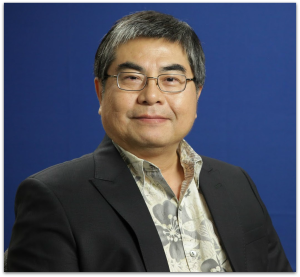 Bor Yann Liaw is a respected battery-related researcher, working in advanced power sources and energy storage systems at the Hawaii Natural Energy Institute. He has recently been appointed to the ECS Electrochemical Science & Technology (EST) Editorial Board as an Associate Editor for a two year-term, concentrating in Batteries & Energy Storage.
Bor Yann Liaw is a respected battery-related researcher, working in advanced power sources and energy storage systems at the Hawaii Natural Energy Institute. He has recently been appointed to the ECS Electrochemical Science & Technology (EST) Editorial Board as an Associate Editor for a two year-term, concentrating in Batteries & Energy Storage.
What do you hope to accomplish in your new role as the EST Editorial Board Assistant Editor?
I think that the impact of the journal is very high, but we need to have more people get involved. I am hoping to promote high-quality papers to be submitted to the journal and be part of the effort to promote the awareness of the journal.
What type of expertise do you bring?
I’ve been working in this area for about three decades, so I think that I have enough knowledge between the newer developments of materials, especially in the nano area, versus the most traditional and classic framework of electrochemistry. We’ll see whether we can bridge the technology gap between the two sets of skills into a more coherent framework, so we understand how the materials in a nanoscale can relate to the classical models or understandings for the electrochemistry.
What are the practical applications regarding your research in sugar-air batteries?
Recently we were working with farmers in Hawaii. We have a lot of papaya that are not marketable, which means they look ugly and are not really sellable. We can take those papaya and grind them up and take the juice and put it into a battery and it’s worked like a charm.
What initially got you interested in science?
My parents are both teachers, so I was inspired in the teaching and the education of possibilities of science. Another thing is probably more with my personality. I’m interested in exploring everything that occurs in our daily lives.
What is the biggest challenge going forward for clean energy?
We probably have to come back to more fundamental understandings and make things much easier and simpler so the cost can come down and the impact to the environment can be drastically reduced.


